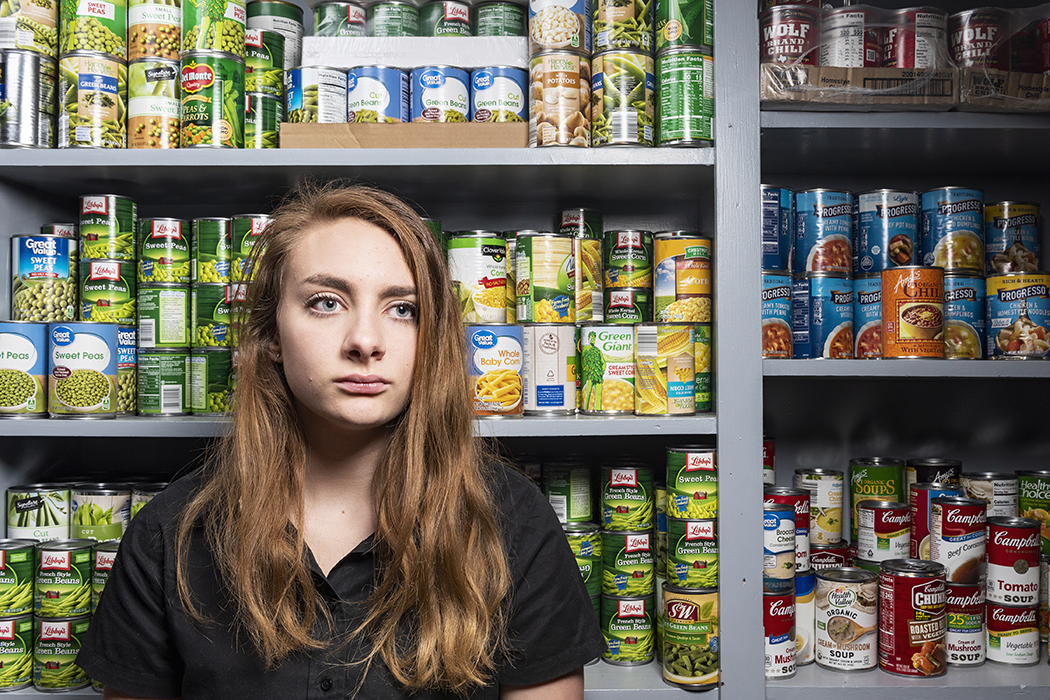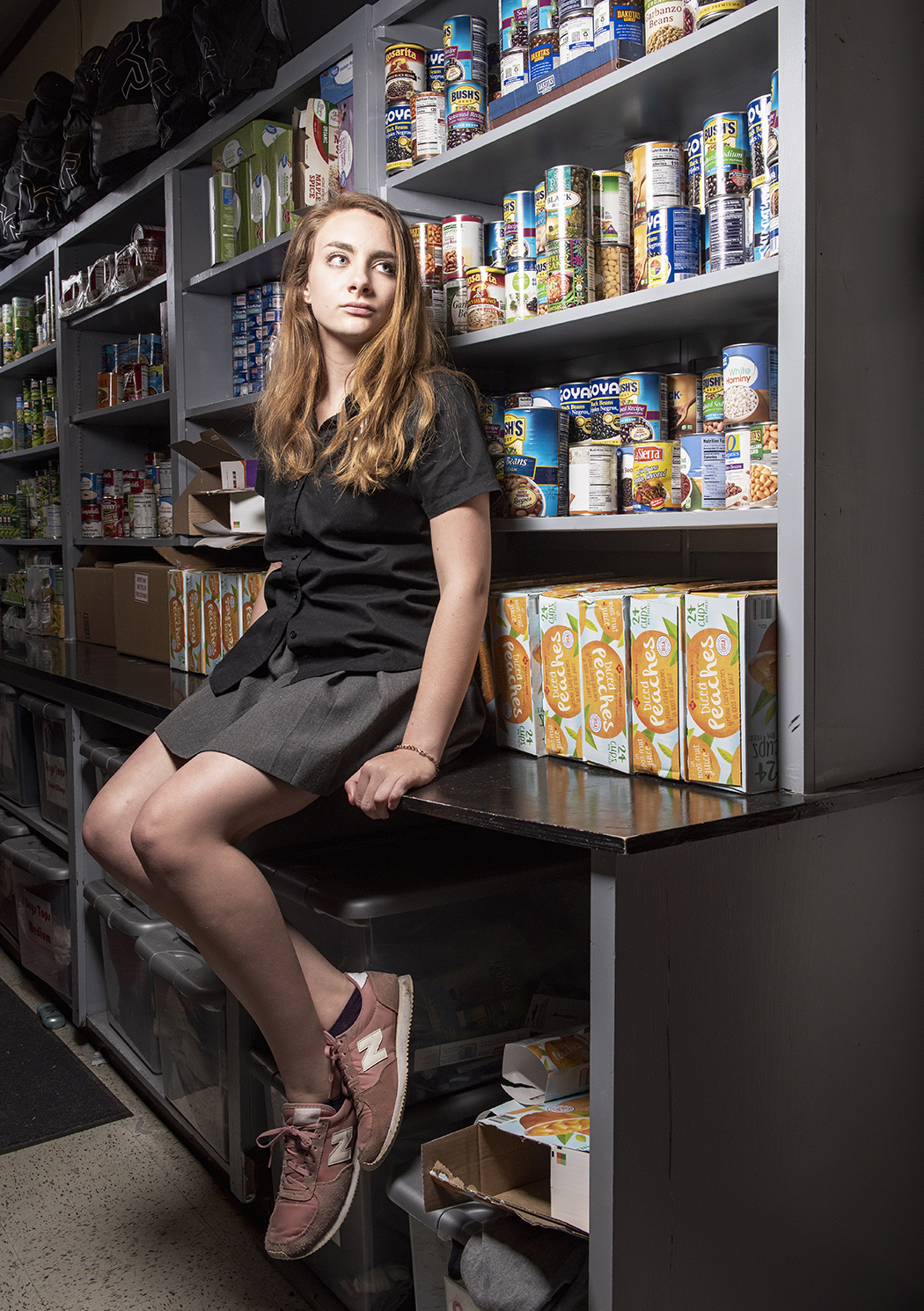
Photography by Danny Fulgencio.
Zoe Wittrock felt woozy as she climbed the stairs to the second floor of Woodrow Wilson High School. It had been hours since the apple she’d eaten for breakfast. Since then, she’d only allowed herself some water and a couple mints. And she still had to make it through an hourslong workout at the gym after school.
Developing an eating disorder had never been part of Zoe’s plan. But since her mom had died of melanoma at the end of her freshman year, she felt like diet — and her schedule — was the only aspect of life she could control.
Zoe didn’t give herself time to grieve. The morning after her mom died, she was back at school performing a color guard ceremony with ROTC. She kept her straight-A average in the International Baccalaureate program and threw herself into extracurricular activities like theater and student council.
A busy schedule also helped justify skipping meals. She didn’t have time to eat.
“It was like, ‘This is who I need to be,’” Zoe says. “I didn’t want to be the girl at school with a dead mom.”
The pressure to be perfect led to an anxiety disorder and then to an eating disorder — a mix of anorexia and bulimia. She’d nibble at her plate during family dinners and then vomit in the bathroom, hoping no one would notice. When her aunt saw a pattern, she confronted her niece about her eating habits.
Therapy sessions helped Zoe mend, and the Woodrow senior has been in remission for more than two years. A friend who also had an eating disorder keeps Zoe accountable. The anxiety is still day-to-day, but she’s learning to cope.
“I have an idea of what I want my life to look like, and if it’s not like that, I get upset,” she says. “I realized I need to be OK with different circumstances and not have control of everything. That’s how you let new experiences come in.”
Releasing control meant finally facing her mother’s death. Zoe had worked so hard to make her mom proud — not only in school, but around the house. When her mom was admitted to the hospital, Zoe shouldered new responsibilities, such as cooking, cleaning and taking care of her two younger siblings.
“I hated visiting the hospital,” Zoe says. “To see your mom hooked up and needing a machine to live is the worst thing ever, especially when you’re young. She’s supposed to be taking care of you.”
When she died, relinquishing those duties wasn’t an option for a long time. Zoe didn’t want to walk into the house without her mother’s touch. But as she began to grieve, the 18-year-old rid herself of activities that she had only performed out of duty. A supportive friend group encouraged her to be a teenager — bake brownies, see a movie or go bowling.
“My mom would have wanted me to be happy and not stressed out and overexerting myself rather than just being a kid,” Zoe says. “For such a long time, my perspective was the bigger picture. That separated me from my peers for a while, but by the time senior year rolled around, everyone was on the same page again. We don’t care who everyone is dating. Where is everyone going to university?”
Zoe’s schedule is still packed, but that’s not unusual for busy seniors. She works two jobs to pay for tuition at Belhaven University, a private liberal arts college in Jackson, Mississippi. The teen is on track to receive nearly a full ride through scholarships and financial aid.
She also volunteers at numerous organizations like the Woodrow Peace Pantry, Seek the Peace, East Lake Pet Orphanage and Frontier Camp, where she uses her experience to help younger girls who have also lost a parent.
“I get to relate to them and support them,” Zoe says. “Birthdays are hard. Holidays are terrible, but you can make new memories and traditions without forgetting the old.”

Photography by Danny Fulgencio.





